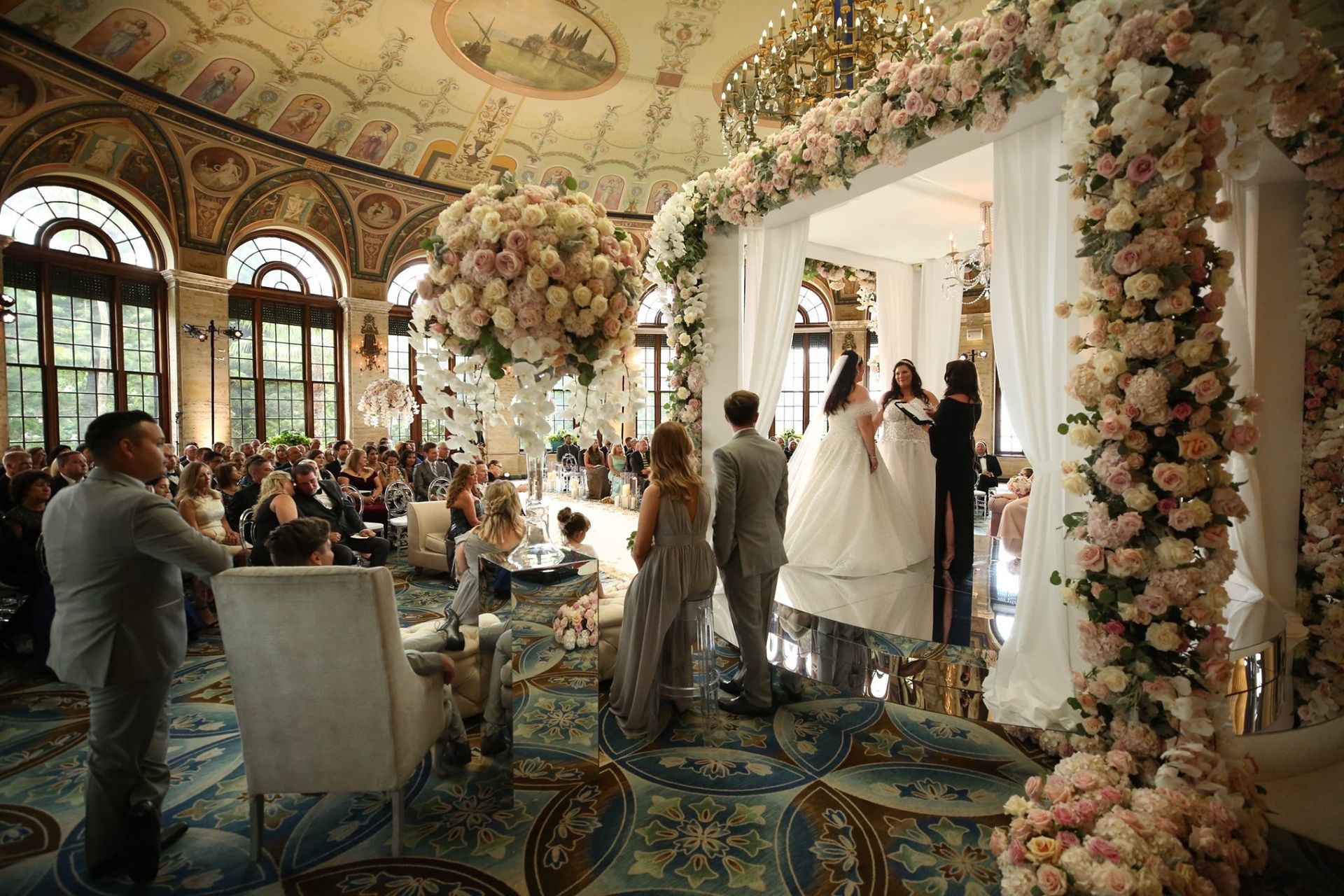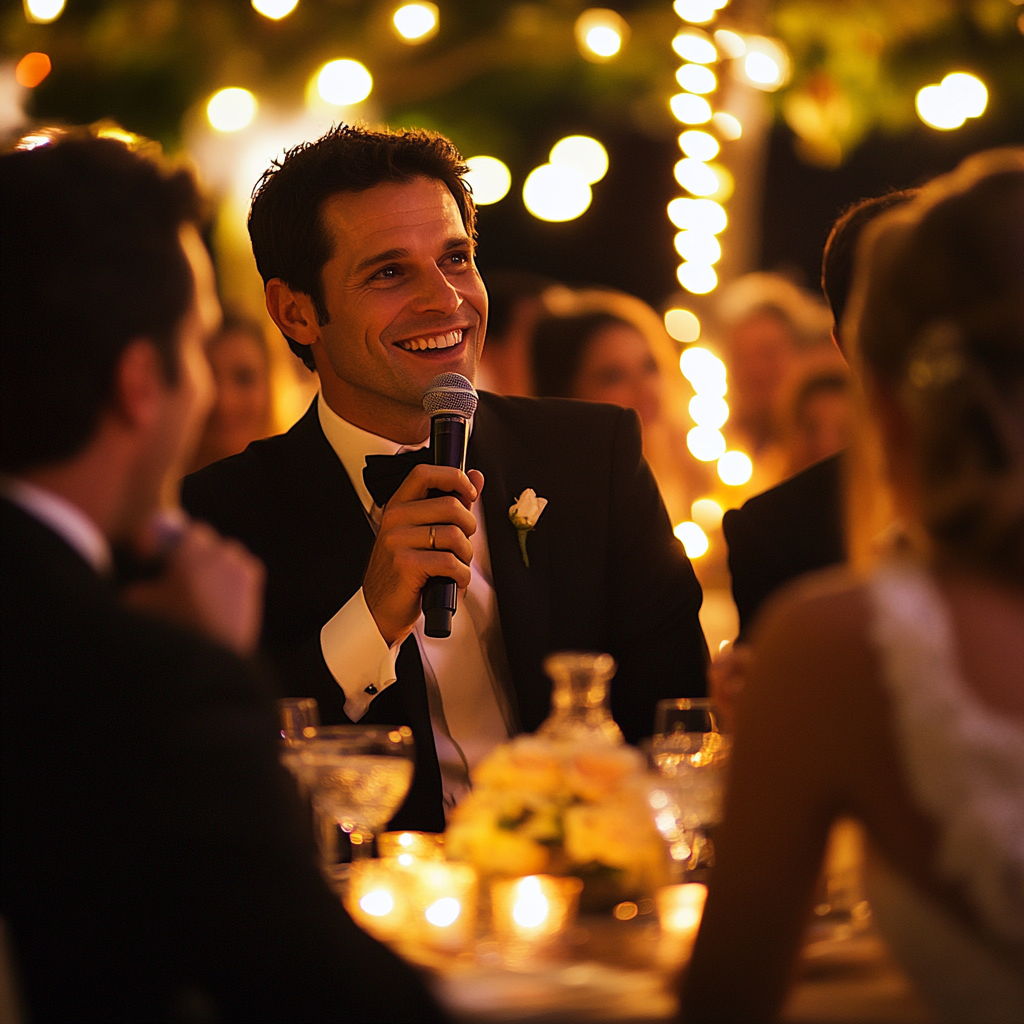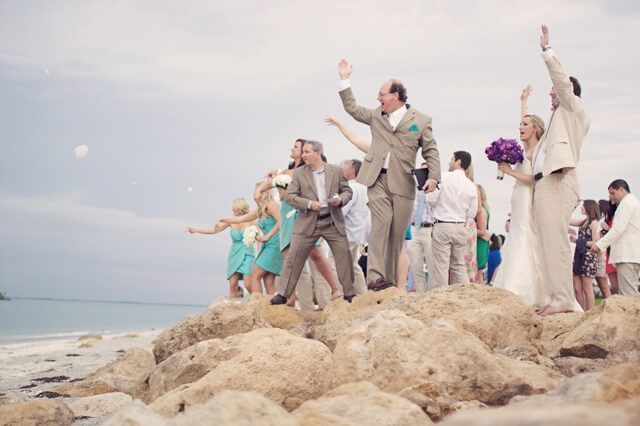A Guide to finding your Wedding Officiant
What is a Wedding Officiant?
Your wedding day is one of the most cherished moments in your life. A wedding officiant plays a crucial role in making this day memorable. But what exactly does a wedding officiant do?
A wedding officiant is responsible for conducting the marriage ceremony. They ensure the ceremony runs smoothly, reflects your personal love story, and adheres to any legal requirements. From creating a customized script to guiding you through your vows, the officiant helps make your special day seamless and heartfelt.
In many cases, a wedding officiant may also help with the legal aspects of your wedding, such as signing your marriage license and ensuring that all necessary paperwork is completed. This important job requires someone who is not only organized but also empathetic and attentive to your needs.
Ready to create a personalized wedding ceremony? Contact Cynthia today to discuss how we can make your day unforgettable.
What Does a Wedding Officiant Do?
A wedding officiant is responsible for leading the marriage ceremony, ensuring it reflects the couple’s love story and values. They work closely with the couple to craft a unique ceremony script, including the exchange of vows and any special rituals.
Beyond crafting the ceremony, a wedding officiant will also handle the legal requirements of getting married. This includes ensuring the couple has a valid marriage license, and signing it after the ceremony. This aspect is crucial to legally solemnize the marriage, making the officiant’s role both celebratory and administrative.
Many couples appreciate an officiant who offers personalized touches to their ceremony, making it a reflection of their unique journey together. This might include custom readings, special blessings, or even incorporating family traditions.
Want to ensure your officiant has the right skills? Schedule your consultation with Cynthia today!
Types of Wedding Officiants
There are various types of wedding officiants, each bringing a unique touch to your ceremony. These include religious leaders, civil officiants, and even friends or family members. Each type offers a different approach, depending on your preferences and values.
Religious Leaders:
These officiants are typically associated with a specific house of worship and can provide a ceremony that aligns with your faith. They are ideal for couples whose wedding is rooted in religious traditions and who want their ceremony to reflect their spiritual beliefs.
Civil Officiants:
These are often judges, justices of the peace, or notaries who officiate weddings in a more secular or non-denominational manner. They are great for couples seeking a neutral ceremony that focuses on their love and commitment without religious elements.
Friends or Family Members:
With online ordination becoming increasingly popular, many couples opt for a friend or family member to officiate their wedding. This choice adds a personal and intimate touch to the ceremony, making it even more special.
How to Find an Officiant for Your Wedding
Finding the right wedding officiant can feel overwhelming, but it doesn't have to be. Here are some steps to help you find the perfect match:
Do Your Research
Start by asking for recommendations from friends, family, or your wedding planner. Online reviews on platforms like WeddingWire can also provide valuable insights. Make a list of potential officiants and take note of their style and feedback from previous couples.
Make Sure Your Wedding Officiant Possesses the Right Skills
Look for an officiant who is not only experienced but also matches your style and understands your vision. They should be able to handle the emotional aspects of the ceremony and ensure everything runs smoothly.
Want to ensure your officiant has the right skills? Schedule your consult with Cynthia today!
Interview All Potential Wedding Officiants
Meeting potential officiants in person (or virtually) is crucial. This allows you to gauge their personality, professionalism, and how well they understand your needs.
Prepare a list of questions to ask during your interviews. These might include their experience, their process for creating the ceremony, and how they handle unexpected situations. Make sure to ask about their availability on your wedding day and their fee structure.
Questions to Ask Your Wedding Officiant
To ensure you find the perfect officiant, prepare a list of questions to ask during your interviews. These might include:
- How many weddings have you officiated?
- What is your process for creating a personalized ceremony?
- Can you provide references from couples whose wedding you have officiated?
These questions will help you understand the officiant's experience and whether they’ll also be a good fit for your ceremony. Be sure to ask about their approach to different types of ceremonies and how they handle any special requests you might have.
Tips for Finding a Marriage Officiant
- Start Early: Begin your search for a wedding officiant as soon as you set your wedding date. Popular officiants can book up quickly, so don't delay.
- Consider Style and Personality: Ensure the officiant's style matches your vision for the ceremony. They should be able to connect with you and your partner on a personal level.
- Check Legal Qualifications: Make sure your officiant is legally qualified to officiate in your location and can help you with the necessary paperwork.
Ready to book your officiant? Schedule a consultation with Cynthia today and secure your date.
When Should You Book Your Wedding Officiant?
It’s best to book your wedding officiant as soon as you have your wedding date and venue. Popular officiants can book up quickly, so don't delay. Typically, booking 6-12 months in advance is ideal to ensure you have enough time to plan and coordinate all details of your ceremony.
If you’re planning a destination wedding or an elopement, booking early is even more crucial to accommodate travel and other logistics. Early booking also gives you ample time to work with your officiant on creating a fully customized ceremony that reflects your love story.
Ready to book your officiant? Schedule a consultation with Cynthia today and secure your date.
Can Anyone Officiate a Wedding in Florida?
In Florida, the requirements for who can officiate a wedding are quite flexible. Ordained ministers, notaries public, and even some family members can officiate your ceremony, provided they meet certain criteria.
Getting married in Florida allows for a variety of officiants, making it possible to have a friend or family member ordain and officiate your wedding. However, it’s important to ensure they are legally authorized and registered with the state if required.
Interested in having a loved one officiate your wedding? Find out how with our custom ceremony writing service.
Wedding Ceremony Officiant FAQs
How can I find a unique, original wedding ceremony?
Schedule Your ConsultLook no further! At Ceremonies with Cynthia, we don't start with a script. We start from scratch with each couple! Every wedding ceremony we do is completely different.
What does a Wedding Officiant do?
Schedule Your ConsultA wedding officiant leads the ceremony, ensures it reflects your love story, and handles legal requirements like signing the marriage license.
How do I find a wedding officiant?
Schedule Your ConsultStart by asking for recommendations, reading reviews, and interviewing potential officiants. Ensure they match your style and are legally qualified.
Can anyone officiant a wedding in Florida?
Schedule Your ConsultYes, ordained ministers, notaries public, and some family members can officiate a wedding in Florida, provided they meet certain legal criteria.
When should I book my wedding officiant?
Schedule Your ConsultIdeally, book your officiant 6-12 months in advance to ensure they are available and to allow ample time for planning your ceremony.











